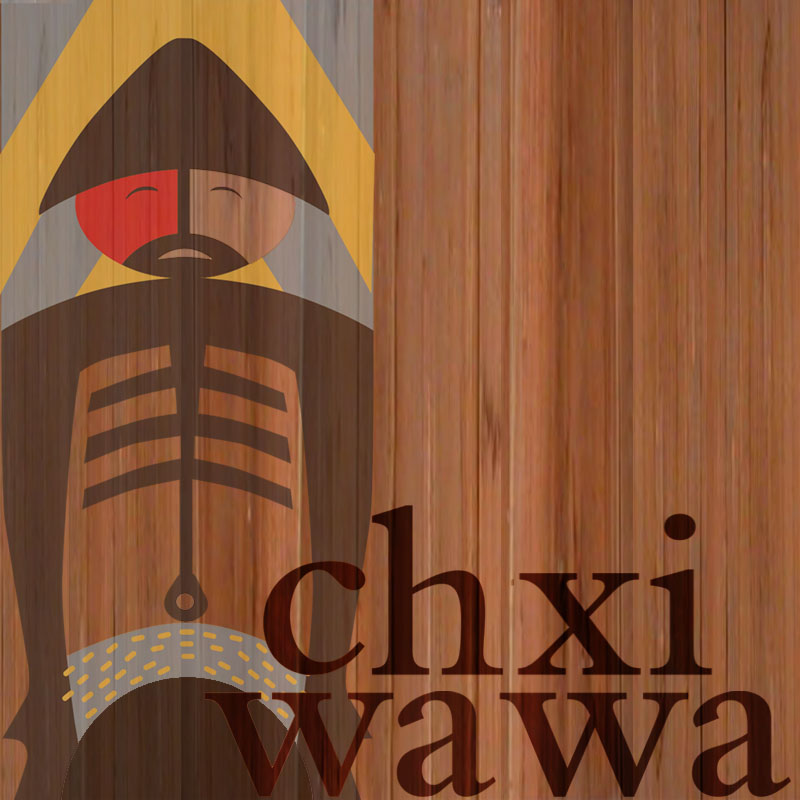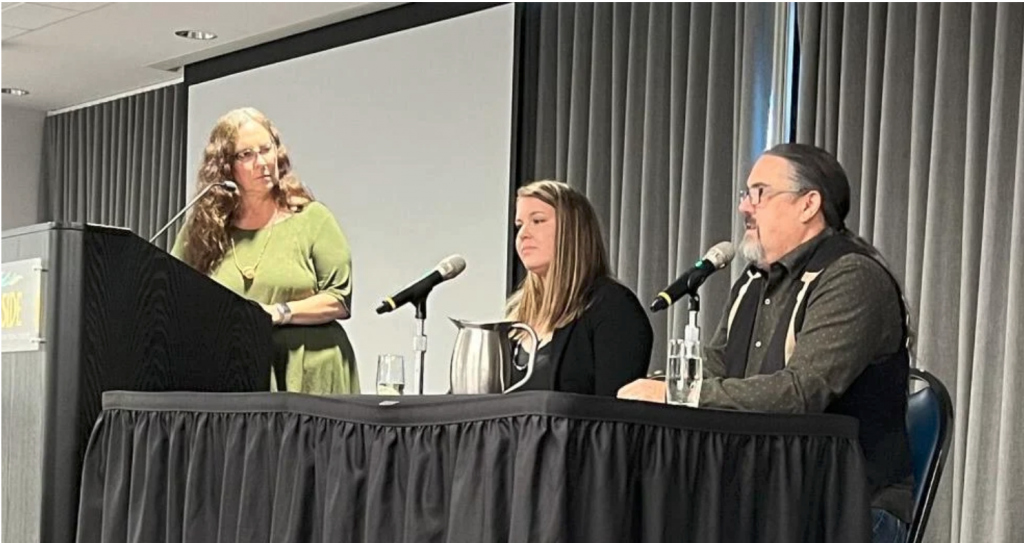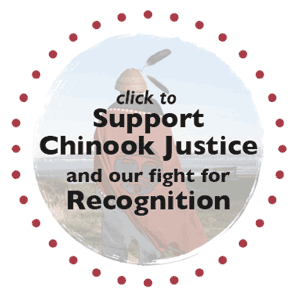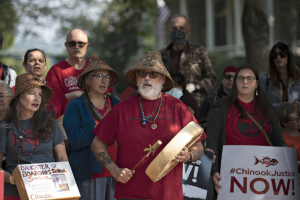By OLIVIA PALMER , EO Media Group,
SEASIDE — Rachel Cushman has a clear message: the Chinook Indian Nation is still here.
That message resounded Saturday as dozens gathered at the Seaside Civic and Convention Center to witness the signing of a historic memorandum of agreement between the Chinook Indian Nation and the Necanicum Watershed Council.
The memorandum, which codifies a co-stewardship model, guarantees the Chinook Indian Nation two spots on the watershed council’s board of directors and provides a framework for an ongoing partnership focused on environmental restoration.
“Really the ultimate goal (is) to take care of this place, which our community’s called home for 10,000 years and settlers have called home for about 150,” said Cushman, the Chinook Indian Nation’s secretary and treasurer and a Necanicum Watershed Council board member.
Relationship
The Chinook Indian Nation is made up of the five westernmost Chinookan-speaking tribes on the mouth of the Columbia River. Over the past three years, the Chinook have developed a partnership with the watershed council guided by principles of co-stewardship, working on projects with board members from the very beginning of the decision-making process.
“The tribe brings things to the table, the watershed brings things to the table, and together, we make decisions,” Cushman said. “That’s really what this (memorandum) is — it’s codifying that relationship and making it exist in perpetuity, because right now, the board of directors and the tribal council both are agreeing to this, but we want to make sure this relationship is protected for generations to come.”
The nation initially became involved with the watershed council after Cushman received an invitation to attend board meetings. Gradually, the two groups began a learning process centered around tribal sovereignty.
“There was a lot of educating that needed to happen, but folks were willing to listen, and through some conversations — ongoing conversations, and maybe pushing through uncomfortability — we built that relationship up and over time began implementing different projects,” Cushman said.
Two years ago, the nation and watershed council hired their first shared employee to help research best practices for a memorandum of agreement. They’ve also partnered on other stewardship projects, including Earth Day planning, the Cans for Coho bottle and can recycling program and a recent culvert replacement at Coho Creek.
As the planning committee creates a strategic action plan, it will continue to identify additional opportunities for stewardship and collaboration.
“Our hope isn’t that this (memorandum) is an end result,” Cushman said. “This is just the beginning.”
Formalizing a partnership isn’t just about stewardship. Cushman said it also represents an important step in the Chinook Indian Nation’s fight for federal recognition. At Saturday’s event, she joined Chinook chairman Tony Johnson in sharing more of their tribal history.
Cushman is a direct descendant of Clatsop Chief Wasilta, a primary negotiator and signer of the 1851 Tansy Point treaties. The treaties were sent back to Congress, but never ratified, leaving the tribes unrecognized by the federal government.
After submitting more than 81,000 documents to the Office of Federal Acknowledgment, the Chinook Indian Nation received federal recognition in 2001. The decision was reversed just 18 months later.
Real impacts
Today, the lack of federal recognition has real-world impacts, Cushman said. Although the Chinook Indian Nation is treated as a tribal entity, it doesn’t have access to the same resources that federally recognized tribes do, including resources through the Indian Child Welfare Act, the Bureau of Indian Affairs’ home improvement loan program and the Indian Health Service’s community health representative program.
To Cushman, forming a partnership with the Necanicum Watershed Council demonstrates what she calls a radical act of sovereignty.
“Despite Chinook’s lack of federal acknowledgment, the Necanicum Watershed recognizes us as a sovereign nation, as important players in the development of the community here,” she said. “We’re not waiting for the federal government to tell us that we can do it, that we can build these partnerships. We’re doing it regardless.”
She hopes that a radical act of sovereignty can plant a seed for more partnerships to come.
“I like to say, people united means Chinook justice is possible,” Cushman said. “Chinook is still here. We’ve always been here. And we want to help with making this place that we’ve called home for so long a better place.”








